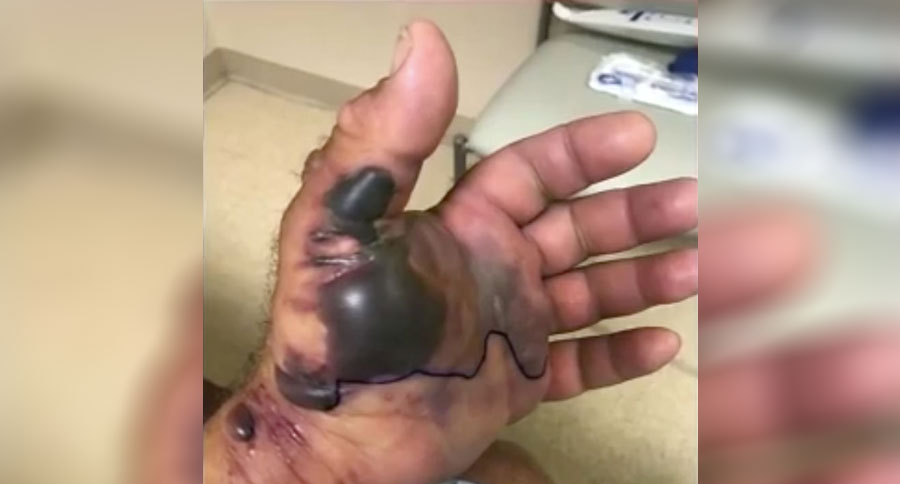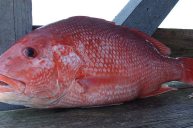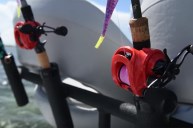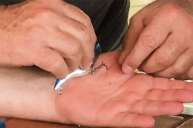Heed the warning: flesh-eating bacteria can do some serious damage, as this Florida fisherman found out first hand.
When Mike Walton gets pricked by a fish hook, like he has so many times before, he typically yanks it out and doesn't give it much more thought. That changed drastically after he received treatment for necrotizing fasciitis, a flesh-eating disease caused by a rare bacterial infection.
It happened the Saturday before Easter, and by the next morning his hand had what appeared to be black bubbles forming on the surface.
Walton said he was fishing about 20 miles off the coast of Palm Harbor.
"I had like little blisters starting to form on my hand and you could watch like sweat beads coming up on side of the hand, and then they just turned black," he told WFTS ABC Action News.
He received treatment at Tampa General Hospital, and is recovering in his Ozona, Florida home. This ABC Action News video report has more.
"When you look down and you can see your own tendons, back of your hand and your bone going up your arm," said Walton, "that makes it real."
Amputation became a real consideration. Doctors were able to remove bacteria from the tissue of his arm, and graft skin back onto his hand and arm, according to the Tampa ABC affiliate.
A GoFundMe campaign has already raised more than $22,000, with a goal of $100,000.
The dangers of flesh-eating bacteria in the Gulf of Mexico have become clear, and those in the know are trying to spread the word and inform anglers, boaters, and beachgoers of the potential threats, and how to hopefully avoid them.
Experts have suggested keeping a bucket of diluted bleach and disinfectant mix on a boat, a marina, or the beach, and continually rinsing your hands during the day. If you have cuts, these steps become even more vital.
Walton doesn't deny his luck, but he won't let this incident end his joy of fishing. Let's just hope the lesson learned, and the precautions needed, are taken seriously from here on out.
NEXT: 10 TIMES FISHING GAVE US THE COMPLETELY UNEXPECTED
WATCH: THE BEST WAY TO REMOVE A FISH HOOK




